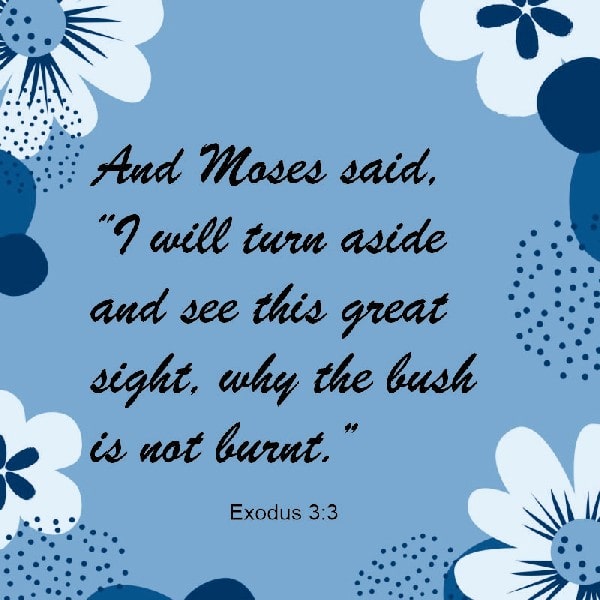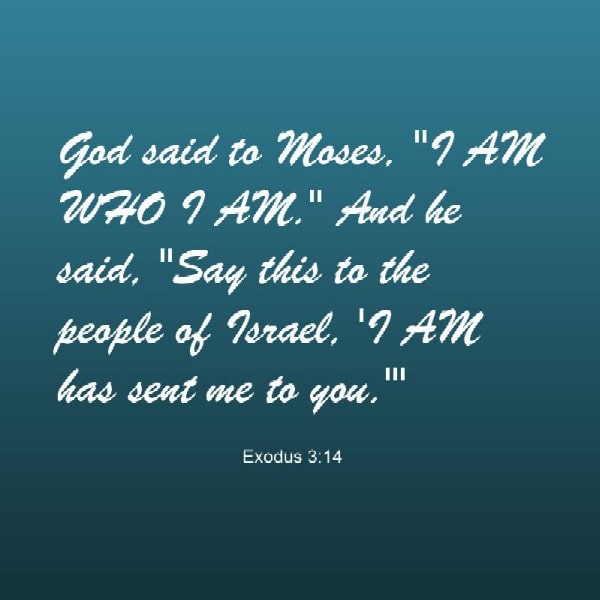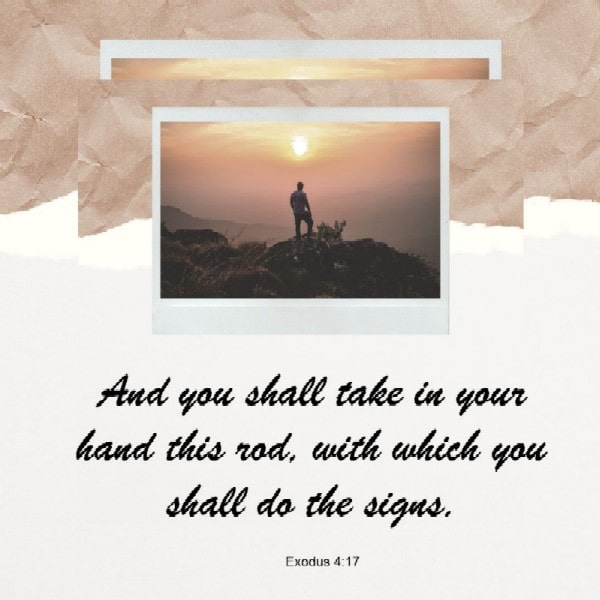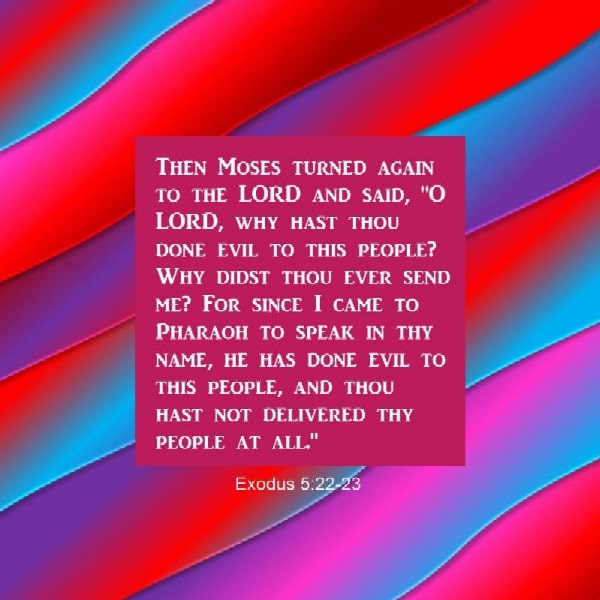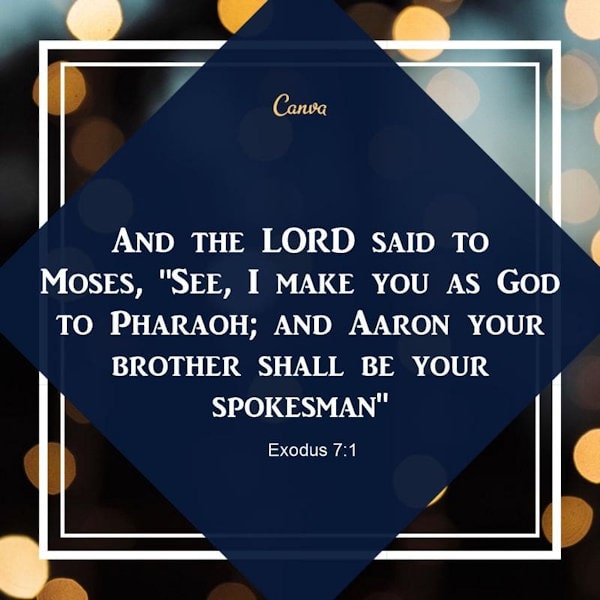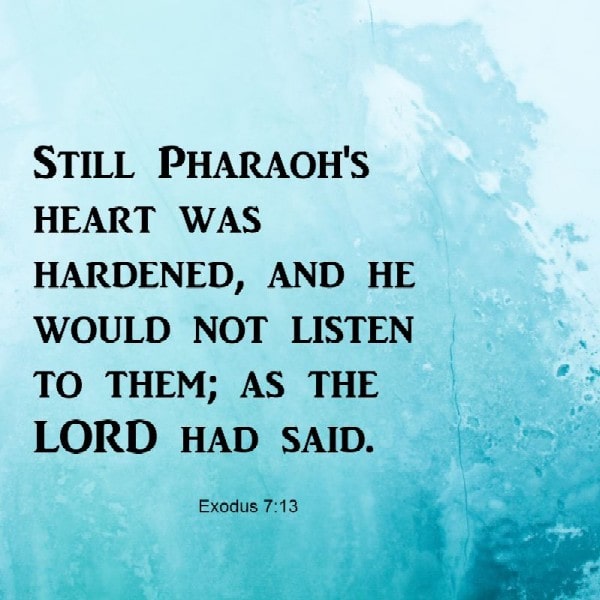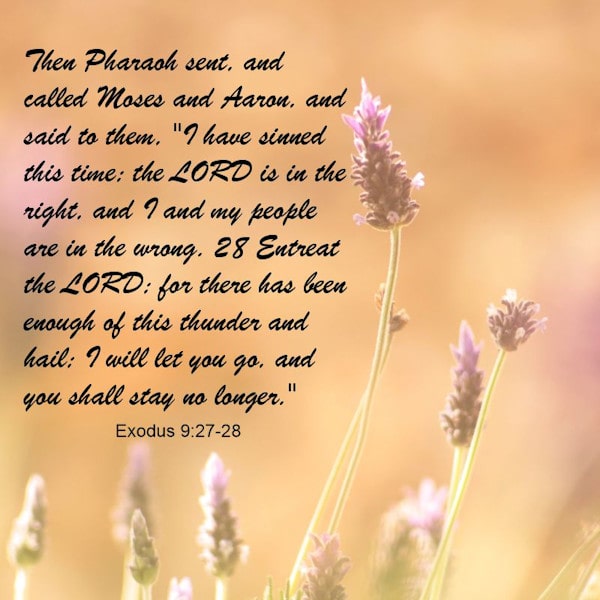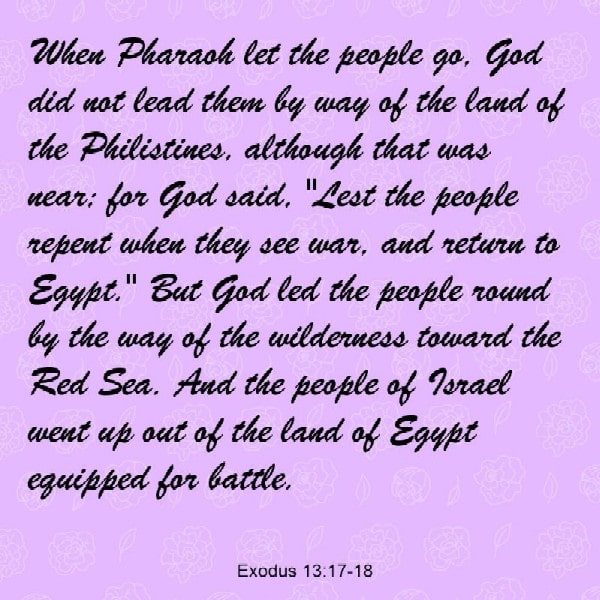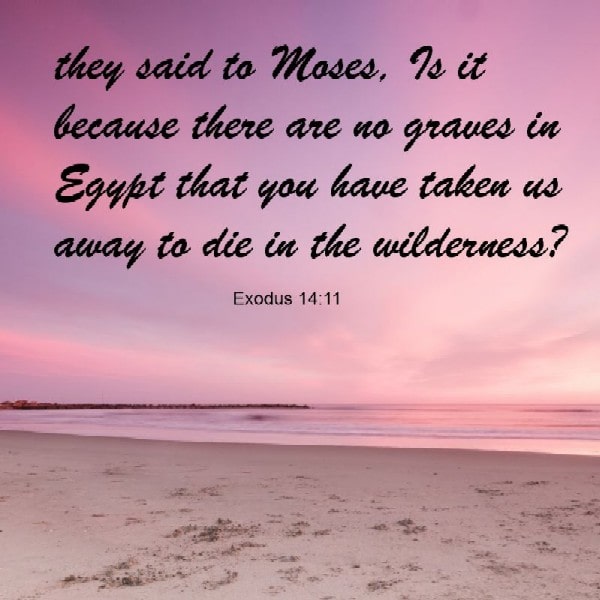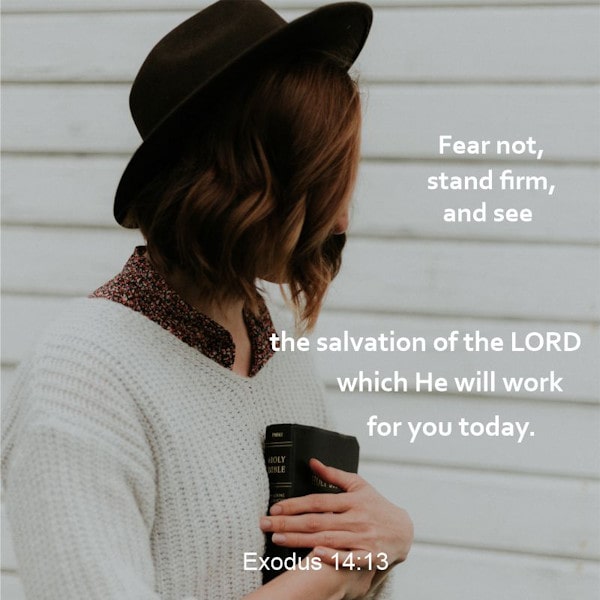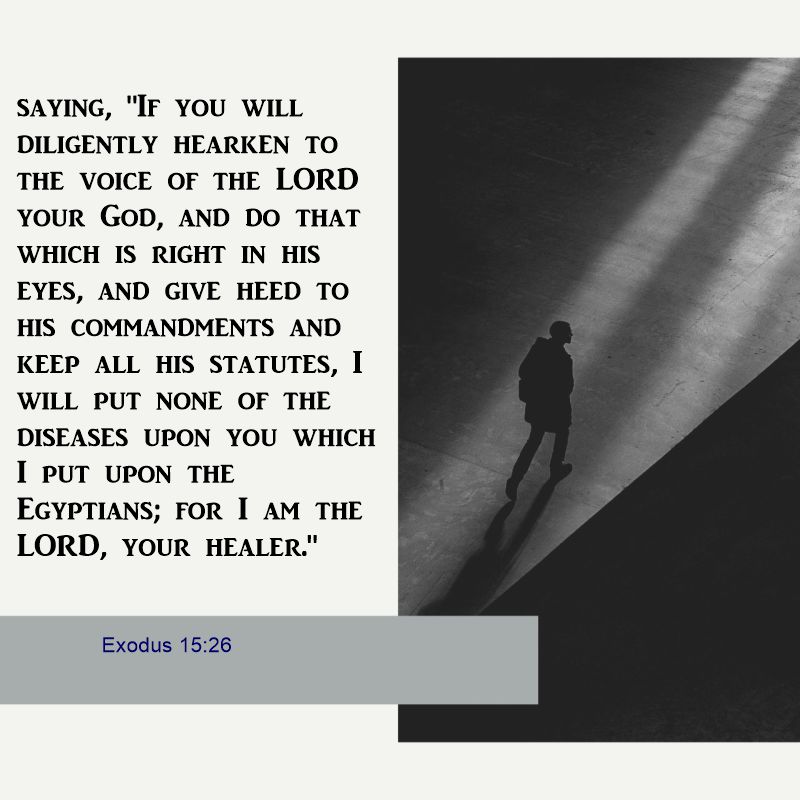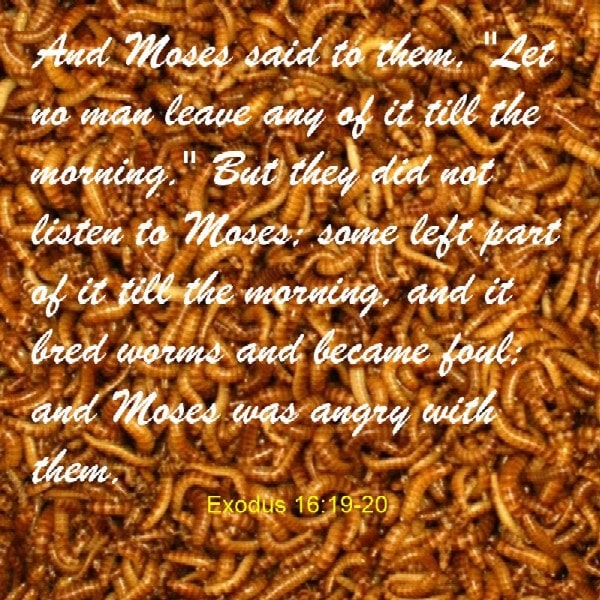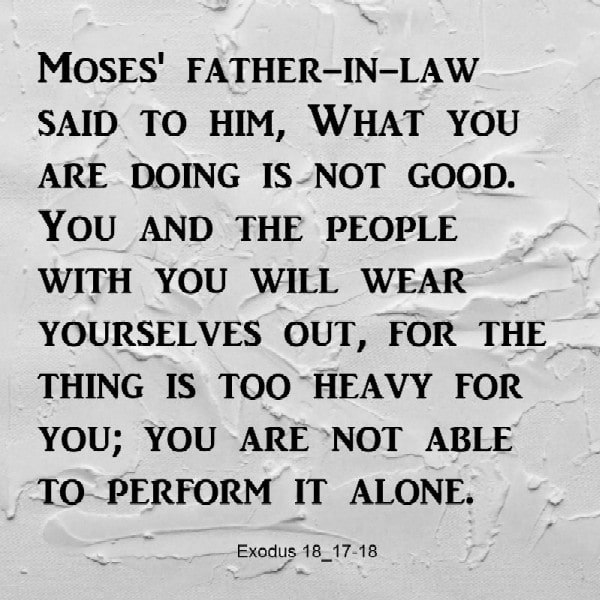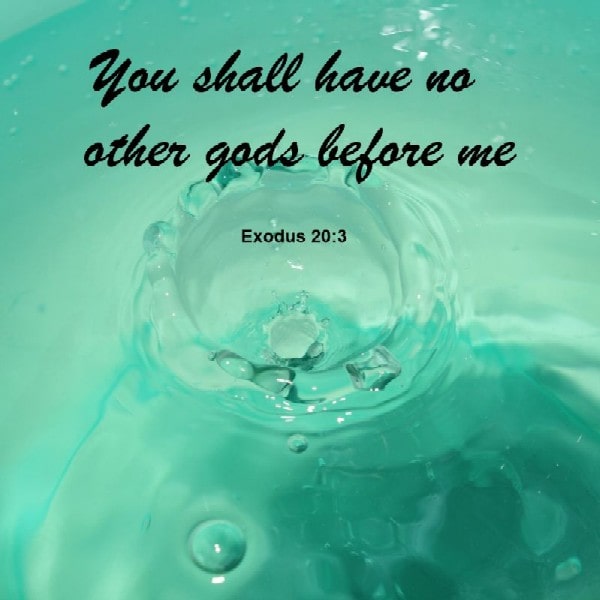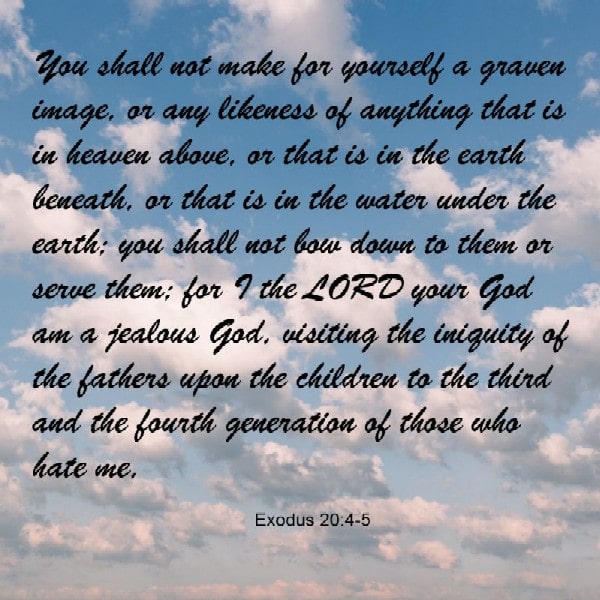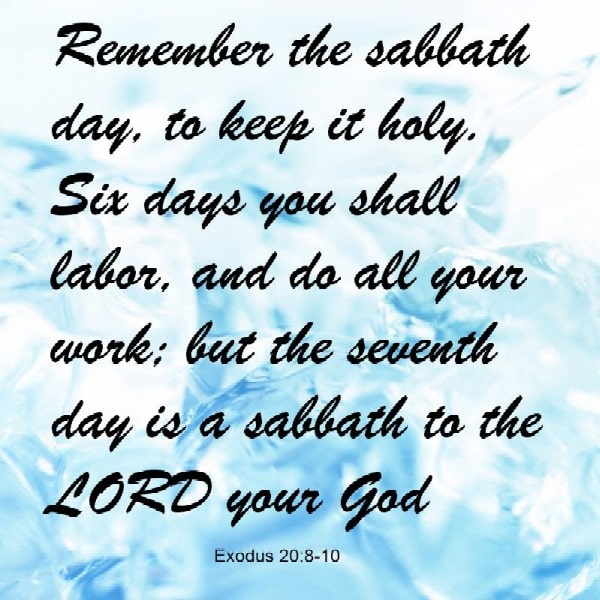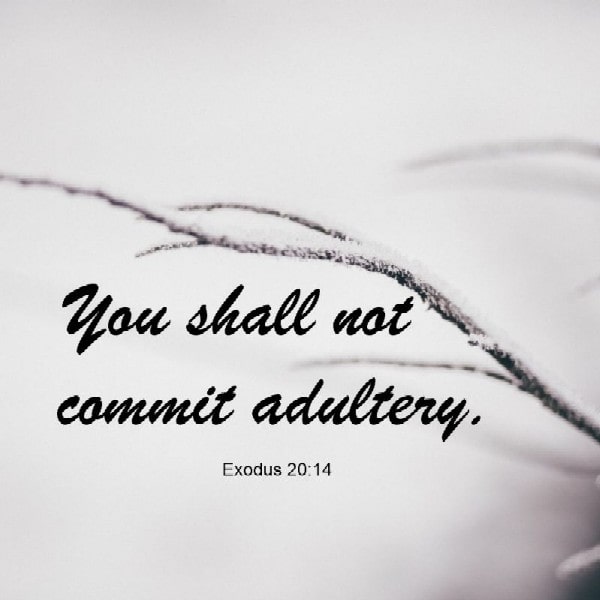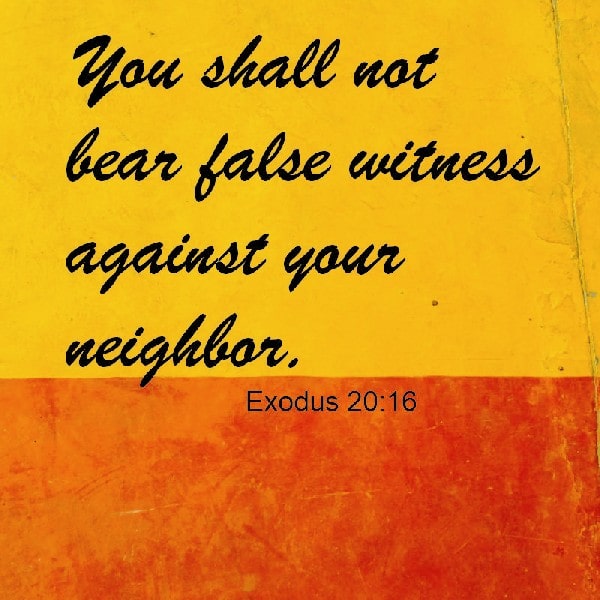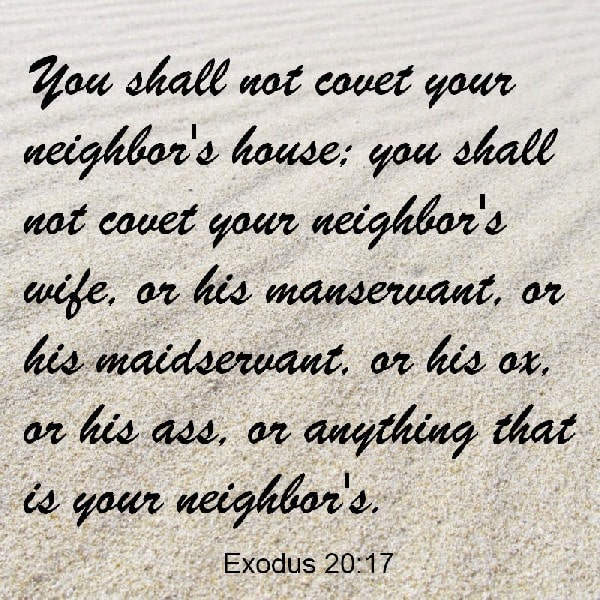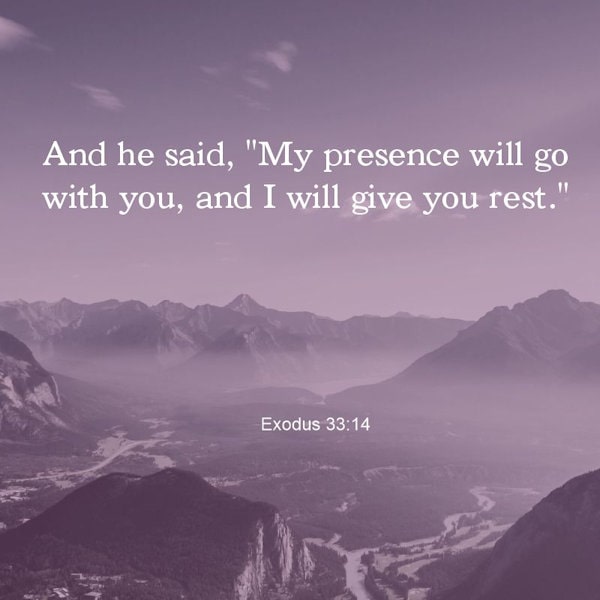Bible study Daily, explanation and encouragement - Exodus
- When midwives had to choose between fearing God and obeying the orders of the king of Egypt, they chose to fear God. How will you react when faced with a choice between pleasing man or obeying God? Midwives were rewarded with families, not for the explanation they gave, but because they feared God.
Exodus 2:7
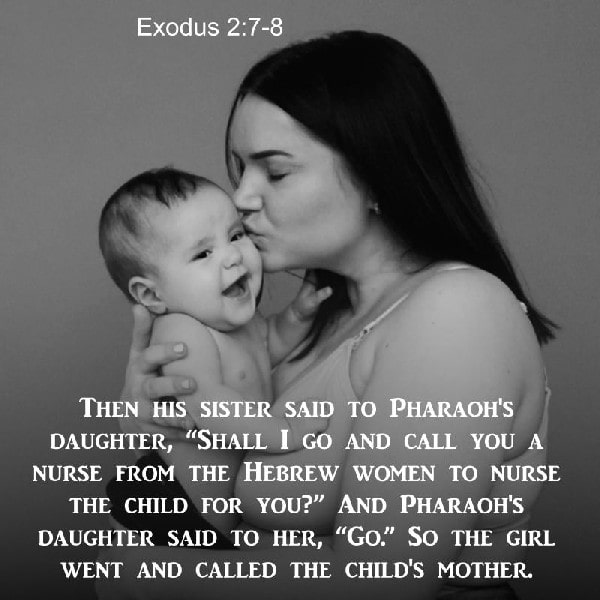
Notice this mother’s initiative. She "conceived... gave birth to a son... saw that he was beautiful... took a basket... and put the child in it" (Ex 2:2,3). These actions denote a woman of courageous faith and clear goals. Its motivation and results are clarified by the author of Hebrews (Heb 11:23-27). She circumvented the law that ordered her to kill her baby: by placing him in the Nile River, she fulfilled the law (Ex 1:22); By surrounding him with protection, including placing her sister to watch over him, she demonstrated faith (Ex 2:3-4).
Today's minds cannot comprehend the terrifying tactics of the ancient Pharaohs. Idolatrous and corrupt, they felt nothing but contempt for Yahweh, the God of the Israelites, their enslaved social victims. Hatred, hostility and hard work were facts of life.
Jochebed serves as a model for women today with her contagious courage to fear God rather than men, and with a firm faith in promises and divine providence. Jochebed took her role as a mother very seriously, she raised her children in the Lord with conscious dedication. Certainly, she was the greatest influence before God in preparing these children for the great task that the Lord had for each one in leading and freeing his people from slavery.
Godly life is living with God in your life and His life in you. He gives us guidance to help us build our lives on His precepts.
God calls us to do the acts of faith that build godliness. WITHOUT FAITH, OUR ACTS BECOME VAIN RELIGION. Piety includes pious practice and avoids vain religious acts.
- Be vigilant to perceive the action of God. It often manifests in unexpected ways.
- Participate regularly in the Lord's Supper. So we share your release and life.
The blood shall be a sign for you, upon the houses where you are; and when I see the blood, I will pass over you, and no plague shall fall upon you to destroy you, when I smite the land of Egypt Exodus 12:13.
Stay calm while God works. You will see your release. - Celebrate the blessings that God grants you.
- THE SUCCESSFUL CHRISTIAN LIFE BEGINS WHEN YOU KNOW WHO IS GOD.
- In Exodus God reveals part of His nature and character. TRUE KNOWLEDGE OF GOD WILL AFFECT OUR BEHAVIOR.
- Exodus provides four principles that will make our lives more faithful and fruitful.
- UNDERSTAND WHAT GOD IS! Its name is "I AM THAT I AM". Trust this foundation. Be rooted and established in it.
- RECEIVE GOD AS "THE LORD WHO HELPS YOU". Healing is part of His nature; His will is for us to be healthy.
- TRUST THE GOD WHO IS: "THE LORD IS YOUR FLAG" when you surrender to Him - your battle will be victorious.
- SEEK GOD WHO IS "THE LORD WHO HOLDS YOU". His life in us makes our holiness possible.
God bless you winner!
The secret of Moses' success was to take THIS ROD IN HAND. In this chapter, carrying the “rod of God” means:
- Complete surrender of yourself to God.
- The means by which people would recognize the presence of God.
- The channel through which God would show His power.
If you want to win in the face of things that seem impossible in your eyes, take the rod of God with you. Say: Lord, I alone cannot, but the Lord can do everything for me. Trust in the Lord, give your worries to Him, and the more ... He will do it.
- Sometimes the beginning faith is weak. In the beginning, the people had believed Moses, but this severe test led them to doubt.
On the same day, Pharaoh gave the following command to the overseers and overseers responsible for the people: "Do not give the people more straw to make bricks, as they did before. Let them gather the straw! But demand that they continue to make the same amount of bricks ..." Ex 5: 6-8 - Moses was logically wrong! How could God be at work when things get worse? They still had to learn that it gets darker just before daybreak, that all things must be counted as loss (Phil. 3:8) in order for God to become everything and that God will release when a person comes to the end of himself.
- The appeal was made by Moses to the Lord. Instead of giving an answer to the people's officers, he went directly to God. It is often futile to do the opposite, especially when the mind is confused. It was clearly clear that the situation had worsened. There was no outward sign that God would begin deliverance. Moses asked, Why did you send me?
The Lord is pleased when we go to His presence with our “why?” and “for what?” When faith is growing, there are always setbacks. God often humiliates us before showing His strong arm. Many Saints cried out: “ Sovereign Lord, holy and true? (Rev. 6:10) but God watches over every movement of His suffering children.
WALKING IN HOLINESS
God calls us to be holy, set apart for Him and His purposes.
God wants His people to be different in nature and in character before the world - different in the way they think, act and live.
Know that God deals with us believers differently than with the people in the world.
Thus I will put a division between my people and your (Egypt, unbelieving) people. By tomorrow shall this sign be (Exodus 8:23).
Only in the land of Gosen, where the children of Israel were, there was no Hail (Exodus 9:26).
Trust in the blood of Jesus to protect you from all harm (1 Peter 1:. 18,19).
Obey the word of God and you will become His private property (Exodus 19:5).
Be a servant of Jesus. He will open your ears to hear His voice and understand His word.
Be zealous for God's holiness. He honors the one who honors Him.
We certainly must not say that God leads man to be evil. Pharaoh was responsible for his bad choice and for turning his heart away from God. However, when a person fixes his will against God, then God gives him over to the ignoble desires that exist in his heart (Rom. 1:24); “As they did not care to have knowledge of God, so God gave them up to a perverse feeling (Rom 1:28). God shows mercy to those who give themselves to Him and hardens those who resist them prolonged (Rom. 9:18). Perhaps God's judgment will put some who turn away from the light in a certain place where they can no longer turn to Him (Heb 10: 26-30). God gave life and skill to Pharaoh's endurance in order to further demonstrate his power and glory. God only hardens the hearts of those who first harden their own hearts. It causes this hardening through extraordinary intervention or through common responses to life experiences.
- FALSE REPENTANCE
This time, Pharaoh was terribly frightened. He confessed: I have sinned; the LORD is just. He asked for clemency and promised: I will let you go. Moses granted Pharaoh's request and he ackknowing that the land is the Lord's. But at this point, Moses knew that the King did yet really fear the Lord God. - FALSE REGRET:
- It has the characteristic of confession.
- Recognize God's justice.
- Admits personal disability and seeks God's help.
- Promises improvements.
- However, it lacks the fear of God.
- It is easy for the individual whose heart is hardened, to remain remorseful when adversity passes. Many confess their sins, make promises and seem to repent under judgment, but the truth is revealed when the difficulty lessens. The depth of the change is known when external circumstances change. Without change, there is no way to believe, there is only the speech.
- Sometimes God guides us through the most difficult path because He is doing a special work in us. How can we learn to rely on Him when everything in our life is easy enough for us to take care of everything alone? God guided the children of Israel through the long and difficult path through the desert to prepare them for the battle they would face when they owned the promised land. He feared that when they saw the enemy, they would flee back to Egypt and return to their former captivity. God wanted to show who He was and teach that they could depend on Him to fight their battles.
- Many of us think that after entering our promised land, we will no longer have spiritual battles. Nothing more is true!
- If you know that God asked you to do something, do not back down just because it is difficult. When the path gets tough, spend more time with Him, depend more on Him and receive more of His grace.
- These Israelites, like so many new converts, although freed from the slavery of forced labor, still had “an evil and unfaithful heart”. They were very afraid and full of doubt, soon forgetting the powerful acts of God done on their behalf. They had agreed with the leaders, but now, in the face of the impending catastrophe, the lack of serious commitment was revealed.
- How often does faith fail just when God is ready to do His greatest work! But God had his man of faith! The text does not say how much Moses trembled inside, nor is it noticeable that he already knew what God was going to do. But the encounters he had with God made him sure that God was in control. There was nothing that people could do except to quiet their fears, to be quiet and to see the Lord's deliverance. Moses can declare: THE LORD WILL FIGHT FOR YOU AND YOU SHALL SHARE. SO ONLY CALM DOWN. There was no need for any more cries to God. It was time to march. In our spiritual walk, we have reached a point where fearful prayers cease is: to take the step in faith.
- Whenever the children of Israel feared helplessness, He was working on His purposes.
- So never doubt God's care for your life.
And Moses said to the people, "Fear not, stand firm, and see the salvation of the LORD, which he will work for you today; for the Egyptians whom you see today, you shall never see again (Exodus 14:13).
Be still and see the deliverance of the Lord. For the believer facing great dilemmas and in dire straits, this is the Lord's command. When surrounded right and left, what to do? KEEP YOURSELF on such occasions that you should listen only to the Master's word. My help comes from the Lord!
THE PROBLEM OF MURMURING:
- Leadership is expensive, because the blame for adversity lies with the leaders. These people knew that Moses was a man of God; therefore, their sin was also against God. Great experiences with God do not necessarily heal the bad and complaining heart. The murmuring ceases only when we crucify the self and enthroned Christ alone (Ephesians 4:31,32).
- The only thing Moses could do was cry out to the Lord. There is no doubt that God would have provided drinking water in response to Israel's patient faith, had they remained steadfast. The Lord sometimes satisfies our whims at the expense of faith. Here the waters became sweet when Moses threw a log at her, but Israel's faith remained weak. We know of no natural method to explain this miracle.
- God used this occasion to teach Israel a lesson, giving it status is an ordination. If people listened to God and obeyed His word entirely, they would be healed of all the illnesses that God had put on Egypt. God wanted to take the murmuring spirit out of the people and give them strong faith.
The successful Christian life begins when you know who God is.
In Exodus, God reveals part of His nature and character.
Understand WHO GOD IS!
I am who I am! - TRUST this foundation. BE ROOTED AND ESTABLISHED IN IT (Exodus 3: 14,15).
RECEIVE GOD AS THE LORD WHO HELPS YOU
Healing is part of His nature; His will is for us to be (spiritual) healthy (Exodus 15: 25,26).
SEEK GOD WHO IS THE LORD WHO HOLDS YOU
His life in us makes our HOLINESS POSSIBLE (Exodus 31:13)
- In this episode, God's lesson for Israel, as well as for Christians, is that believers must depend on God day after day. Christ's life in the Christian is preserved at every moment by his permanence in God. Daily and careful obedience results in regular provision; carelessness brings disturbance and judgment. Israel learned to harvest manna in the morning, before the sun melted it; spiritual food harvested early in the morning withstands the heat of the day.
- Although Moses made it clear that there would be no bread only on the Sabbath day (v.26), even so some of the people went on to harvest double during the week. There are always those who do not believe in the word of God, thus refusing to keep His commandments and laws. The order became more explicit: No one was to leave his place on the seventh day. No one should leave the camp; people had to rest on the seventh day.
- Beloved, rest in the Lord, knowing, believing and trusting that all your needs He has already tasted. He does not abandon his children! Never!
THE POWER OF PRAYER
- In verse 12 it says that Aaron and Hur held up Moses' hands, one on each side, so that the hands remained steady until sunset until Joshua defeated the Amalekite army.
- The rod of God clearly indicates the importance of prayer and faith. Victory in the battle against Satan occurs when prayer is effective. God's people, when they pray to God in faith, defeat the invisible forces of Satan. The support of others in prayer helps to achieve this victory. Leaders responsible in the work of God would not be successful without the support of the believers' prayer.br>
- The PRAYER is necessary when the enemy attacks.
- Become powerful on the mountain of God.
- You need other people's livelihood (prayers).
- Prevails in effective victory.
PRAYER BRINGS VICTORY!
- God's work thrives on prayer.
- There is a need for unity in prayer.
- The altars testify to future generations that God answers prayer.
What was happening here, was that Moses' father-in-law went to visit him and saw that the job was too hard for Moses to do alone, because he was taking care of people all day to solve their questions and the crowd stayed there waiting until it got his turn. So Jethro gave the advice for Moses to look for capable people and share that work with him, leaving only the most difficult issues for Moses.
One of the quickest ways for a person to be exhausted in ministry is to be someone who "pleases everyone" rather than someone who "pleases God."
People who want to please everyone have a hard time putting proper limits in the ministry. But we need to understand that setting limits is wise and is a sign of strength, not weakness. Like Moses, we need to learn that we cannot do everything. Try to please only God, and you will experience a peace, a freedom you have never known before.
Verse 2 is the introduction to the first commandment. God identifies as the one who brought the children of Israel out of Egyptian bondage: The Lord. Since He had freed them and proved that He was supreme, they had to make Him their God. There was no place for competitors. All other gods were false.
BEFORE ME MEANS "side by side with me or beyond me". God did not expect Israel to abandon Him; He knew that the danger was in the tendency to render submission like other gods. This commandment highlighted the monotheism of Judaism and Christianity.
The first commandment prohibits all kinds of mental idolatry and all immoderate affection for earthly things that can be perceived with the senses. There is no real happiness without this God, because He is the source of all joy. Whoever seeks joy elsewhere breaks the first commandment and ends up in want and in the midst of tragic events.
Later, the Israelites would fall into the trap of other gods to kill and sacrifice their own children. As is happening today in Satan's church.
- As the first commandment affirms the unity of God and is a protest against polytheism, so the second commandment affirms His spirituality and is a protest against idolatry and materialism. Although certain forms of idolatry are not material - for example, greed (Phil 3:5) or sensuality (Phil 3:19) - the second commandment primarily condemns the making of images as objects of worship. This type of idolatry has always existed among the simplest pagan peoples in the world. Israel's history proves that this temptation is treacherous.
- These images should not become objects of worship: You will not bow down to them. There is no condemnation for making images, as long as they do not become objects of adoration. Idolatry consists in transforming an image into an object of worship and attributing to it the powers of the god (demons) it represents. If we consider that pictures or images of people have divine powers and are worshiped, then they become idols.
- God presented the reasons for this prohibition. HE IS A JEALOUS GOD, in the sense that he does not allow the respect and reverence due to Him to be given to others. God does not haggle success or happiness for people, as the Greek gods did. It is for the sake of the children of God that they are to consecrate and revere their divine name.
To take the name of the Lord, your God, in vain is "to resort to unrealism, that is, to use the name of God to appeal to what is not an expression of divine character". Such profane use of the name of God occurs in perjury, in the practice of magic and in invoking the dead. The prohibition is against false oaths and also includes frivolous oaths and the blasphemy so common today. This commandment does not prevent the use of the name of God in true and solemn oaths.
God hates dishonesty, and it is a serious sin for someone to use the divine name to cover up an evil heart, or to do better than they are. The person who seeks to disguise a sinful life, while professing the name of Christ, breaks this third commandment. Such individuals are guilty before God and receive mercy only after repenting. The righteous venerate the name of God for being holy is sacred.
The reason for observing the Sabbath is that God made the earth in six days and on the seventh rested; therefore the Lord blessed the Sabbath day and He kept it holy. The scriptures have not a list of things which are allowed to do on the Sabbath. The unambiguous inference is that the day is one of rest and worship. Secular and materialistic occupations must be replaced by spiritual activities. Christ condemned the legalism that gave the day its severe and insensitive form, although it did NOT negate the sacredness of the day. It was ordained for the good of man (Mk 2: 23-28).
Observance of the Lord's day (Sunday) as a Christian Sabbath preserves the moral principle in that commandment. The change from the Jewish Sabbath to the Christian Sabbath was made gradually without necessarily losing God's purpose for this holy day. We note that verses 9 and 10 do not specify the Sabbath or the "seventh day of the week" as the Sabbath rest day. The letter of the commandment is fulfilled by observing the day following after the six days of working, as a Christian ought to do.
Honoring father and mother is the first commandment in relation to men and it governs the first relationship that a person has with others: the relationship of children with their parents. This command is so basic that it is widely universal. Most societies recognize the importance of obedient children. The best exegesis of this verse is Paul's exhortation in Ephesians 6:1-3, where he highlights the responsibility of parents and children. With this commandment comes a promise. Those who honor their parents are guaranteed a long life. The purpose of this promise was for the nation in its stay in Israel and the individual who obeys. The promise still stands: the nation whose children are obedient has the promise of longer life. There will be exceptions to this rule, but here we highlight its general application.
Life is the most cherished human possession and it is wrong to deprive someone of life without just cause. Israel's history shows that this command is not absolute. Other clauses were added, such as excusable murder (21:13), accidental murder (Num 35:23) and justifiable murder (22:2). Israel was also allowed to kill enemies and cold-blooded killers. There is no rational exegesis that condemns the death penalty or war simply on the basis of this commandment. Jesus clarified its meaning when he quoted it: "Thou shalt not kill" (Matt 19:18).
Individual and community efforts are needed to preserve human life.
Sexual purity is the underlying principle in this commandment. Adultery consisted of illicit sexual relations made by someone who was married. It was a sin against the family. But this command is applicable to all kinds of sexual immorality. The current view that there are exceptions to the rule is UNJUSTIFIED. Jesus made it clear that adultery is in the heart and occurs before the act.
Matthew 5:28 But I say to you that every one who looks at a woman lustfully has already committed adultery with her in his heart.
This commandment condemns ALL sexual relations that take place OUTSIDE the marriage bond. It also infers the prohibition of acts that precede and lead to the sexual act.
- This commandment regulates the right to private property. It is wrong to take from others what is rightfully theirs. It constitutes theft when a person takes possession of what legally belongs to a person or a company or institution. There is no justification for “ownership” even when the person feels that the product is owed to him. This commandment is broken when a person intentionally fills out the income tax return with false information, thereby withholding taxes owed to the government. This practice is inappropriate even if the citizen disapproves of the government.
- The act of taking advantage of someone else in the sale of property or products, or in managing business transactions, also becomes theft. It is inappropriate to pay wages lower than one is entitled to. The love of money is the basic sin condemned by this commandment. Obedience is perfect only with a pure heart.
While theft deprives us of our property, the conduct of the false witness robs us of our good reputation. Whether in court or elsewhere, our word must always be true. We must not release a report until we have verified its accuracy. Repeat gossip is immoral; before speaking, we must find out the correctness of what we say. There are times when even true information should not be propagated; we are under no obligation to announce to everyone what we know to be the truth (that can also cause harm). But when we speak, as far as we know, we must always tell the truth.
- This tenth commandment is below the four preceding ones, as it achieves the purpose of the heart. Killing, stealing, adultery, and lying are the result of wrong desires that inflame our being. It is unique that Hebrew law includes this challenge to our thinking and intention. "The old moralists did not recognize this condition" and did not condemn evil desires. But it is in the heart where all rebellion begins, and this commandment reveals the inward aspect of all of God's commandments.
- Paul recognized this inner aspect of the law when he became aware of his sinful condition (Rom 7:7). Many people are acquitted of crimes on the basis of outward acts or youth, but are condemned when they take their inner thoughts into account. These covetous desires are, for example, for property or for a woman belonging to another. Such criminal desires must be purged by the Holy Spirit of God; only then will we live in perfect obedience to God's holy law.
Demonstrating God's love!
- Godly life is living with God in your life and with His life in you.
- God calls us to practice acts of faith that build piety.
Without faith, our actions become vain religion. - Piety includes Godly practice, which is the demonstration of God's love through us.
- Celebrate the blessings God gives you.
- Rest in God and His promises!
- God is with you! He looks at you and sees you! Have trust, trust and trust!

